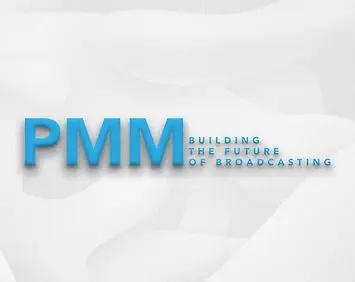PMM Building the Future of Broadcast
Challenge
Transform traditional broadcast master control operations as a hybrid hardware/software model for PBS public television stations.
Implement 24/7 cloud-based master control, centralized media management and content.
Solution
KMH identified and evaluated new technologies to best support each facility’s processes.
KMH Integration continues to work closely with PMM to connect stations and to support Network Operations Center (NOC), the PMM Cloud and the local Node at each station.
Results
- Through KMH’s support, the PMM network of stations has realized more efficient content sharing, ingest and play-out.
- KMH serves as PMM’s “boots on the ground,” providing on-site support, assessing, and resolving issues while ensuring no down-time in operations.
Formed in 2015 as a collaboration between WGBH and Sony, Public Media Management (PMM) has since been rolling out its vision for 24/7 cloud-based master control, centralized media management and content distribution at 22 public television stations. Now co-owned between Sony and Signal Infrastructure Group, PMM is showing no signs of slowing, with several more stations planned to sign on soon.
KMH Audio-Video Integration has worked closely with PMM as its primary A/V system integrator since the project’s early days. As PMM continues to expand, KMH is playing an ongoing role connecting different stations to enable more efficient content sharing, ingest and play-out.
PMM includes three components: the Network Operations Center (NOC), the PMM Cloud and the local Node at each station. PMM’s goal is to orchestrate the entire content management and distribution processes for a public broadcaster’s programming, while still allowing stations to retain control over daily operations such as scheduling, branding and local programming decisions.
The PMM Node downloads content from the PMM Cloud as users schedule it, eliminating repetitive and time-consuming tasks at the local station level. The PMM Node includes playout redundancy to ensure a station stays on the air even if network connectivity is lost.
The NOC acquires content, runs quality control checks and preps national content stored in the PMM Cloud, plus monitors the health of on-air streams, playlists, and a station’s hardware and software.
KMH managed several aspects of the NOC’s set-up, including recommending and installing a remote monitoring and management system.
“KMH was heavily involved in getting the NOC up and running,” said Scott Shactman, vice president of operations for PMM. “They helped us identify and evaluate which technologies would best support each of the facility’s processes, not only for current needs but also for the long term.”
These efforts are paying off for public broadcasters, helping them use their total resources – staff, content and budget – more efficiently. One station, Maryland Public Television, even went on record forecasting an estimated savings of about $2 million over its first five years using the PMM service.
“We’ve been financially beneficial for our customers, delivering significant efficiencies for their overall operations as well as helping to create standards for public broadcasting,” said Stacey Decker, president of PMM. “We also give stations the ability to think outside the box and explore new opportunities for organizational improvement, such as consolidation. I can confidently say we’re adding and providing exactly what we had intended to when we created this service.”
Sony has worked with KMH since PMM’s inception as the service has expanded to more public broadcasters.
“PMM’s continued success in signing on new PBS stations can be attributed to a reliable and flexible master control service and a strong onboarding process, which starts with system integration,” said John Studdert, vice president, of Media Solutions, Sony Electronics and a member of the PMM Steering Committee. “The KMH Integration team members are great problem solvers, responsive and dependable. They offer timely support and their expertise has helped contribute to our overall success.”
The PMM roll-out at each station usually follows a typical blueprint in terms of scope and complexity. There have been exceptions, a perfect example being PBS SoCal: “Easily one of the largest systems we’ve put together,” Decker said. “That job definitely required a different type of workstream.”
Most PMM systems are pre-staged off-site, packed in two shipping containers, and then delivered to each station. The SoCal project required more than double that load to hold all the equipment needed to support their operations.
“We worked closely with KMH to make sure everything was racked properly to sit correctly at the station and make everything as easy as possible for the customer,” said Shactman. “They do a great job setting up our systems remotely, with our support, and getting them out the door on time.”
KMH’s role with PMM extends beyond new client installations. Maryland Public Television recently required an upgrade to its original video routing systems. KMH went on-site, assessed, and resolved the issues while ensuring no downtime in operations.
“That was one of the first stations we commissioned, and at the time we were dealing with a lot of unknowns,” said Shactman. “It was certainly helpful to have them be our ‘boots on the ground,’ putting their expertise to use doing the required clean-up and leaving the client happy.”
PMM is continually exploring new features and services to expand its member stations’ capabilities and “future-proof” their operations. These include support for the ATSC 3.0 standard, a cloud archive for local content, and a closed-captioning tool for file-based content.
KMH will continue to support PMM as it develops and implements these emerging technologies, not only racking and stacking gear, but also helping stations understand and effectively use their new technologies.


